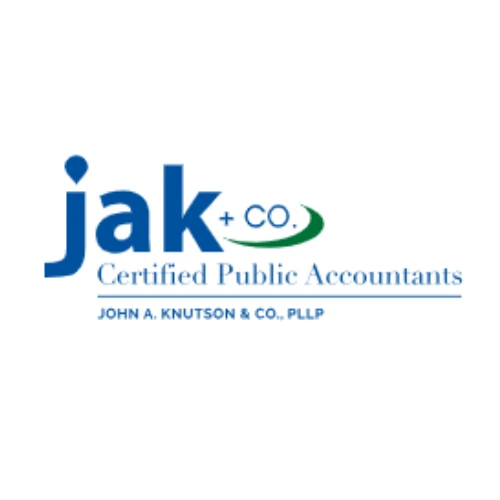Audits can be daunting, especially for small businesses that may not have extensive financial teams or resources. However, with the right Audit and Assurance Service, proper preparation can transform the audit process from a stressful experience into a valuable opportunity to strengthen financial practices. This article provides actionable tips to help small businesses prepare for a successful audit while maintaining financial accuracy and transparency.
Why is Audit Preparation Important?
Preparing for an audit is not just about complying with regulatory requirements; it is also about ensuring the integrity of financial data and building stakeholder confidence. An effective audit process can:
- Identify financial discrepancies
- Ensure regulatory compliance
- Enhance internal controls
- Promote financial transparency
Now, let’s explore the steps to prepare effectively for a successful audit.
1. Understand the Scope of the Audit
Before diving into preparation, understand the type of audit your business is facing. Audits can vary in scope, ranging from financial statement audits to compliance audits. Clarify the objectives with your auditor and determine the areas that will be scrutinized.
- Financial Audits: Focus on verifying the accuracy of financial records.
- Compliance Audits: Assess adherence to laws and regulations.
- Operational Audits: Examine business processes and internal controls.
Knowing the audit type helps in gathering relevant documents and organizing financial data effectively.
2. Organize Financial Records and Documentation
Accurate and well-organized financial records are crucial for a successful audit. Collect and categorize the following documents:
- Income statements
- Balance sheets
- Cash flow statements
- Bank statements
- Tax returns
- Payroll records
- Loan agreements
Ensure that these records are complete, up-to-date, and easily accessible. Digitalizing records can significantly reduce preparation time and facilitate smoother communication with auditors.
3. Reconcile Accounts and Verify Data
Before the audit begins, reconcile all accounts, including bank accounts, accounts payable, and accounts receivable. Ensure that:
- Bank statements match financial records
- Invoices and receipts are properly filed
- Discrepancies are identified and resolved
Accurate reconciliation prevents potential audit findings and demonstrates financial integrity.
4. Collaborate with a Business Tax Consultant
Seeking expert guidance can be invaluable during the audit preparation process. A Business Tax Consultant can help:
- Review financial records for tax compliance
- Identify potential tax liabilities
- Advise on tax deductions and credits
For businesses involved in complex transactions such as Real Estate Development Tax Services, specialized consultants can provide insights into tax implications and ensure proper documentation.
5. Implement Internal Controls and Procedures
Effective internal controls are the backbone of financial accuracy. Implement procedures to monitor cash flow, handle payroll, and manage assets. Regular internal audits can also identify potential discrepancies before the official audit takes place.
- Segregate financial duties to reduce the risk of fraud
- Develop a process for approving financial transactions
- Conduct periodic reviews to assess financial data integrity
6. Communicate with Auditors Early
Open communication with auditors can alleviate potential misunderstandings. Schedule a preliminary meeting to discuss:
- Audit timeline and deadlines
- Required documents and data
- Areas of focus for the audit
Clarifying expectations early helps to minimize last-minute rushes and ensures that all parties are on the same page.
7. Train Employees and Assign Roles
Auditors may need to interview staff or request specific information. Ensure that employees are aware of the audit process and understand their roles. Assign a point of contact to handle auditor requests and coordinate document submissions.
- Provide training on how to respond to auditor inquiries
- Establish a protocol for document requests
- Ensure that key personnel are available during the audit period
8. Review Past Audit Findings and Address Weaknesses
Review previous audit reports to identify recurring issues or areas of concern. Address these weaknesses before the upcoming audit. Implement corrective actions, such as:
- Updating financial policies
- Strengthening internal controls
- Adjusting accounting procedures
Being proactive in resolving past issues demonstrates a commitment to financial accuracy and continuous improvement.
9. Conduct a Mock Audit
A mock audit simulates the actual audit process and can help identify potential issues in advance. This step involves:
- Reviewing financial statements
- Verifying supporting documents
- Testing internal controls
Mock audits provide an opportunity to correct errors and ensure all records are in order before the official audit.
10. Stay Calm and Organized During the Audit
During the audit, maintain a calm and organized approach. Respond promptly to auditor requests and provide accurate information. Ensure that all requested documents are readily available and properly labeled.
After the audit, review the auditor’s findings carefully and address any recommendations for improvement. Implement suggested changes to enhance financial practices and prepare for future audits.
Conclusion
Preparing for a successful audit requires careful planning, organization, and attention to detail. By understanding the scope of the audit, organizing financial records, and collaborating with financial experts like Business Tax Consultants, small businesses can streamline the process and minimize potential disruptions. Implementing strong internal controls and conducting regular mock audits further reinforce financial accuracy and prepare businesses for future audits with confidence.


